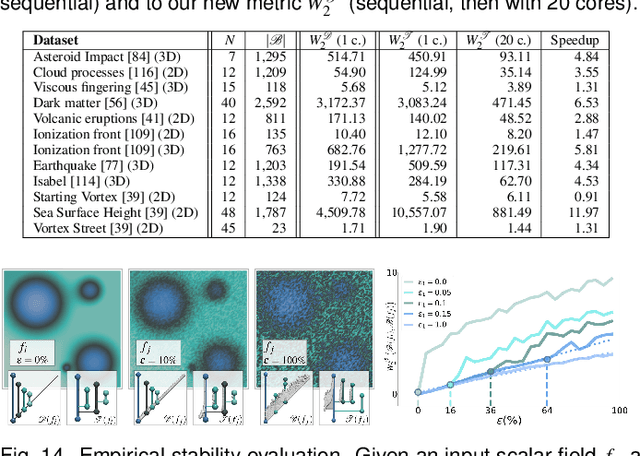Wasserstein Distances, Geodesics and Barycenters of Merge Trees
Paper and Code
Jul 16, 2021



This paper presents a unified computational framework for the estimation of distances, geodesics and barycenters of merge trees. We extend recent work on the edit distance [106] and introduce a new metric, called the Wasserstein distance between merge trees, which is purposely designed to enable efficient computations of geodesics and barycenters. Specifically, our new distance is strictly equivalent to the L2-Wasserstein distance between extremum persistence diagrams, but it is restricted to a smaller solution space, namely, the space of rooted partial isomorphisms between branch decomposition trees. This enables a simple extension of existing optimization frameworks [112] for geodesics and barycenters from persistence diagrams to merge trees. We introduce a task-based algorithm which can be generically applied to distance, geodesic, barycenter or cluster computation. The task-based nature of our approach enables further accelerations with shared-memory parallelism. Extensive experiments on public ensembles and SciVis contest benchmarks demonstrate the efficiency of our approach -- with barycenter computations in the orders of minutes for the largest examples -- as well as its qualitative ability to generate representative barycenter merge trees, visually summarizing the features of interest found in the ensemble. We show the utility of our contributions with dedicated visualization applications: feature tracking, temporal reduction and ensemble clustering. We provide a lightweight C++ implementation that can be used to reproduce our results.
 Add to Chrome
Add to Chrome Add to Firefox
Add to Firefox Add to Edge
Add to Edge